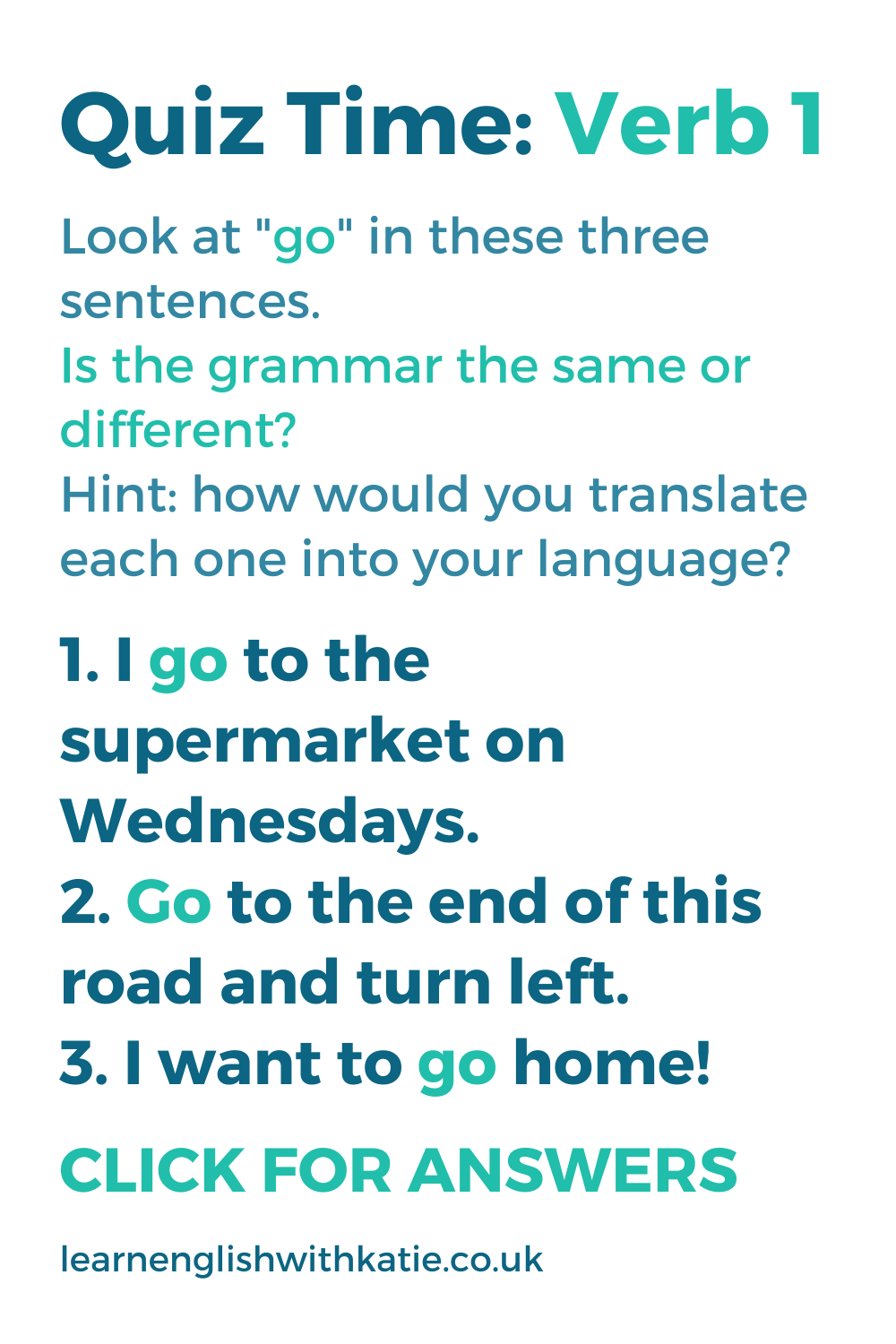|
Quick quiz: Look at the word “go” in these sentences. Is the grammar the same in each one or different? 1. I go to the supermarket on Wednesdays. 2. Go to the end of this road and turn left. 3. I want to go home! Keep reading to check your answer! Answer: They may all look the same but the grammar and the meaning are different in each sentence. Many learners of English find this confusing. This might give you a clue, depending on what language you speak. What happens if you translate these sentences into your own language? Is the translation of “go” the same or different? Let’s have a look at each sentence. Don’t worry too much about grammar terms, such as “imperative” and “infinitive”. You don’t need to know these but it’s important to understand the difference in the meaning. 1. I go to the supermarket on Wednesdays. This is the present simple. In this sentence, we use the present simple to show that it’s a habit. I go every week. And of course you know that you have to remember to add an “s” for “he” and “she”. He goes to the supermarket on Wednesdays. You can learn more about the present simple in this post and this one. 2. Go to the end of this road and turn left. This is the imperative. We use this type of sentence to give instructions, commands and invitations. 3. I want to go home! This is the “infinitive” or “verb 1” (as I prefer to call it). After some verbs, such as “want” we use “to” and verb 1. You can read more about this in a series of five posts starting here. Sometimes we use verb 1 without “to”. For example, I can’t go to the party. To show you that they really are different, let’s look at these sentences. 1. I am English, you are French and he is German. (present simple) 2. Be quiet! I’m trying to concentrate! (imperative) 3. He wants to be a doctor when he grows up. (infinitive) Ok, so “be” looks the same in sentences 2 and 3 but the present simple is clearly different from the other two. You can see that the basic form of the verb can be used in different ways, with a different meaning in each case. Now try this quiz. For each sentence, decide if it’s use 1, 2 or 3. a) Come in and take a seat. b) I don’t know. c) Stop talking! Get on with your work! d) I live in Cambridge. e) He offered to cook dinner. f) I have a cat and a dog. The answers are at the end of the post. Answers:
a) Come in and take a seat. 2 - the imperative, used here as an invitation b) I don’t know. 3 - the sentence is present simple but “know” is verb 1 (the infinitive). We use verb 1 after “don’t”. c) Stop talking! Get on with your work! 2 - the imperative used here as a command d) I live in Cambridge. 1 - present simple e) He offered to cook dinner. 3 - verb 1 (the infinitive) is used after “offer” f) I have a cat and a dog. 1 - present simple Get a free list of irregular verbs, arranged in easy-to-learn groups, by clicking the button below.
0 Comments
Your comment will be posted after it is approved.
Leave a Reply. |
About the blogFollow the blog for mini lessons and tips on how to improve your English. Categories
All
Archives
July 2024
|

 RSS Feed
RSS Feed
